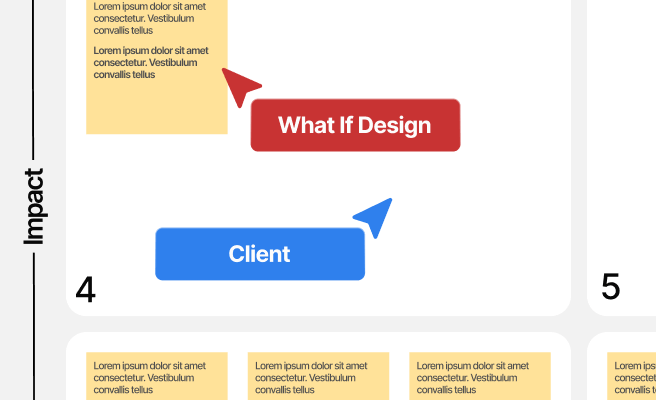Ethnographic Research
<p>Ethnographic research is a qualitative method where researchers immerse themselves in a community or organization to observe and interact with participants in their real-life environment. This approach allows for a deep understanding of the cultural, social, and behavioral aspects that influence people's actions and decisions. Ethnographic research is particularly valuable in fields like climate tech, where understanding the human dimensions of technology adoption and environmental impact is crucial.</p>
<p>Historically, ethnography emerged from the field of anthropology, where researchers would live among indigenous tribes to study their way of life. Today, it is applied across various sectors, including business, healthcare, and technology. In climate tech, for example, ethnographic research can help companies design products that are more likely to be accepted and used by communities because they are tailored to fit the cultural and social context.</p>
<h2 id="2">Importance of Ethnographic Research</h2>
<p>Ethnographic research is essential because it provides rich, contextual insights that other methods, such as surveys or experiments, may overlook. By understanding the lived experiences of individuals, businesses can design more effective products and services. For instance, a climate tech company might use ethnographic methods to study how farmers in a specific region adopt new agricultural technologies, providing insights into barriers and facilitators to technology adoption.</p>
<p>Moreover, ethnography can reveal the underlying motivations and values that drive people's behaviors. In the context of climate tech, this can lead to more sustainable and user-friendly innovations. For example, a company designing a carbon capture solution might use ethnography to understand how industrial workers perceive and interact with new technologies, ensuring the solution is practical and easy to use.</p>
<h3 id="3">Methods and Techniques</h3>
<p>Ethnographic research involves several methods and techniques, including participant observation, in-depth interviews, and the collection of artifacts. Researchers often spend extended periods in the field, allowing them to gain a nuanced understanding of the community or organization they are studying.</p>
<p>Participant observation is a core component of ethnographic research. It involves researchers actively engaging in the daily activities of the community while taking detailed notes on their observations. This method allows researchers to see things from the participants' perspectives and understand the context of their actions.</p>
<p>In-depth interviews complement participant observation by providing a deeper insight into the participants' thoughts, feelings, and experiences. These interviews are usually semi-structured, allowing for a flexible yet focused exploration of relevant topics.</p>
<h3 id="4">Challenges in Ethnographic Research</h3>
<p>Conducting ethnographic research comes with its own set of challenges. One of the primary challenges is gaining access and building trust within the community. Researchers must establish relationships and demonstrate respect for the participants' culture and norms.</p>
<p>Another challenge is the time-consuming nature of ethnographic research. It requires a significant investment of time to immerse oneself in the community and gather meaningful data. Additionally, analyzing the data can be complex, as it involves interpreting nuanced and often subjective information.</p>
<h2 id="5">Examples of Ethnographic Research</h2>
<p>Ethnographic research has been employed in various fields to achieve significant insights and outcomes. For instance, in climate tech, ethnography has been used to understand how communities perceive and engage with renewable energy technologies. A study might involve living in a rural village to observe how solar panels are adopted and utilized by the residents, providing valuable information on factors influencing adoption rates.</p>
<p>For more examples of ethnographic research, you can visit <a href="https://helpfulprofessor.com/ethnography-examples/" style="color:#2896FF; text-decoration:underline;">Helpful Professor</a> and <a href="https://www.indeed.com/career-advice/career-development/examples-of-ethnography" style="color:#2896FF; text-decoration:underline;">Indeed</a>. These sources provide diverse examples of ethnographic studies conducted in different settings, from business to healthcare.</p>
<h2 id="6">Implementing Ethnographic Research</h2>
<p>To implement ethnographic research effectively, it is crucial to follow a structured approach. Begin by defining clear research objectives and identifying the community or organization to study. Obtain necessary permissions and build rapport with key stakeholders to facilitate access.</p>
<p>During the fieldwork, engage in participant observation and conduct in-depth interviews. Take detailed field notes and collect relevant artifacts that can provide additional context. Analyze the data by identifying patterns and themes that address the research objectives.</p>
<p>For those interested in conducting ethnographic research, resources such as <a href="https://researcher.life/blog/article/what-is-ethnographic-research-methods-and-examples/" style="color:#2896FF; text-decoration:underline;">Researcher Life</a> offer guidance on methods and best practices.</p>
<h2 id="7">Conclusion</h2>
<p>Ethnographic research is a powerful method for gaining deep insights into human behavior and social dynamics. By immersing themselves in the community or organization they are studying, researchers can uncover valuable information that can inform product design, policy-making, and other areas. Despite its challenges, the rich, contextual data obtained through ethnography make it an invaluable tool for understanding complex issues, particularly in fields like climate tech where human factors play a crucial role in technology adoption and environmental impact.</p> <p>Increase user engagement that converts your demos into sales. Optimise your UX strategies with our audits.
<p>Fill out the <a href="https://tally.so/r/n97pxQ" style="color:#2896FF; text-decoration:underline;">UX Audit form</a> to get started. Ready to discuss your needs? <a href="https://cal.com/akhilak/what-if-design?duration=25" style="color:#2896FF; text-decoration:underline;">Book a consultation call</a> with us today.</p></p>

Let's scale your impact with great design.
Free consultation, no sales pitch
Thank you! Your submission has been received!
Oops! Something went wrong while submitting the form.
Let’s talk
Nothing great is built alone.
Let’s connect about your vision, our work and how we can collaborate.
Get in touch

